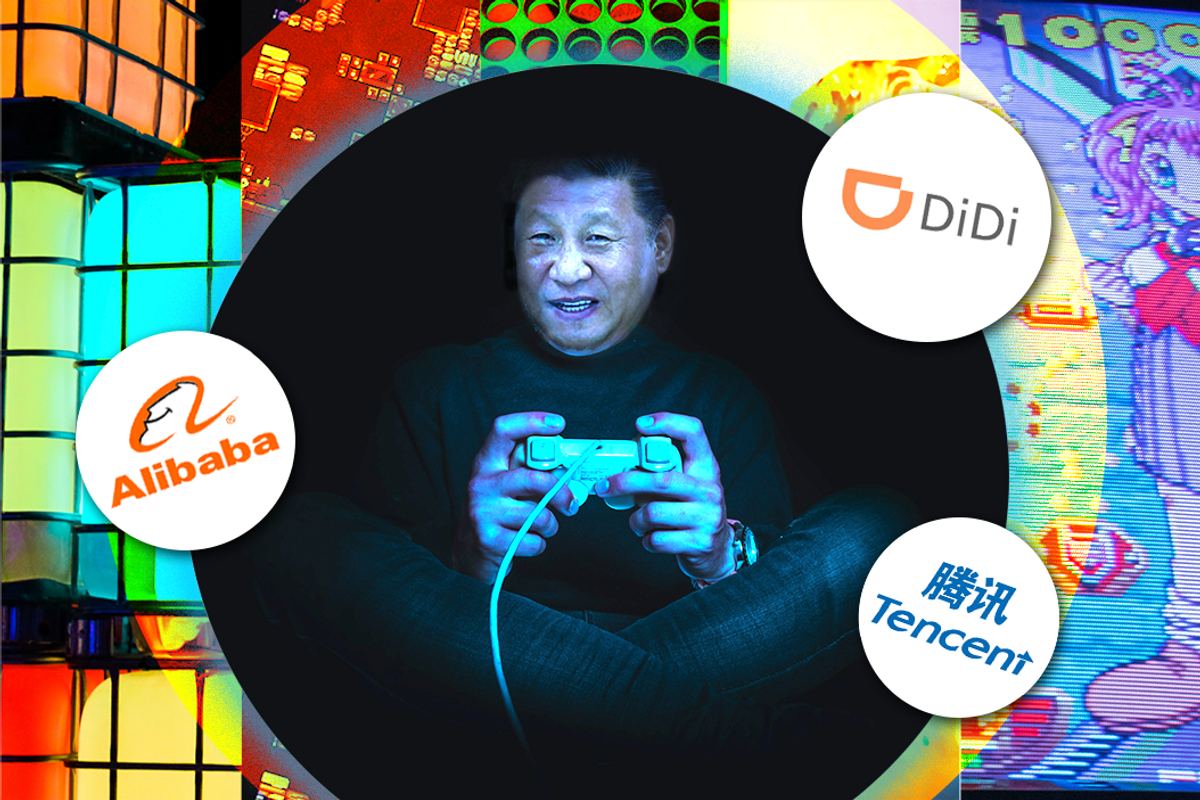This week, the market value of Tencent, China's biggest video game company, nosedived after a state media outlet suggested that online gaming was as addictive and destructive as opium. Tencent immediately pledged to cap the number of hours people can play, and to keep minors off its platforms.
It's the latest example of a months-long crackdown on major Chinese technology firms that until recently were viewed as some of the world's most powerful and successful companies, as well as a source of national pride. Beijing's about-face on its own tech titans could have big implications for China, and beyond.
Who's being targeted? First they came for billionaire Jack Ma, who was fined a whopping $2.8 billion for alleged antitrust violations and stopped from launching Ant Group, part of his Alibaba empire, as the world's biggest IPO. The value of its stock has plummeted since.
Then Beijing imposed sweeping restrictions on cryptocurrency trading, perceived as being too volatile... right as China (wink-wink) is pushing its own digital yuan as a reliable alternative.
After that, it was the turn of ride-hailing app Didi, which — on the eve of its American IPO — had its offices raided by state security agents for collecting more data on passengers than Beijing was comfortable leaving in the hands of a private firm. Next, for-profit tutoring giants were taken offline for skewing college admission odds towards the kids of rich families who can afford the help.
Now, it's the gamers' turn.
Why all the fuss? Beijing has all these companies in its crosshairs because they do at least one of three things Xi Jinping doesn't seem to like: they've become too big too fast, have gathered too much data, or are making too much money at the expense of social stability.
At a time of rising inequality in China, being rich is no longer, in Deng Xiaoping's own words, "glorious."
Here are two ways to understand what's going on.
One prevailing narrative — especially in the West — is that Xi is bullying large, rich companies because he is simply an authoritarian party boss who wants to stop any tech mogul or company from becoming too influential for the ruling Communist Party. Some argue that Xi would rather put the likes of Alibaba, Didi, or Tencent in their place — and perhaps out of business altogether — than let them become rival power centers. That's especially true if US stock market listings open up sources of financing and influence for these companies from Beijing's number one rival.
But another reading is that he is using his terrible powers for an understandable purpose. After decades of breakneck growth and corporate enrichment, China is reining in companies in the interest of social harmony over infinite growth. From this perspective, Xi is astutely flexing the one-party state's (considerable) muscle to nip social ills like inequality, monopoly, or gaming-induced apathy in the bud before they become horrific political problems like in the West.
In fact, at a time when many countries want to regulate tech firms but can't do so expediently as democracies, Beijing is — as far as this argument goes — ahead of the curve. In other words, by cracking down on tech behemoths Xi's acting less like Joseph Stalin than like trust-buster Teddy Roosevelt.
Xi has found an unexpected ally in Chinese youth, who are otherwise tired of their parents and the government ganging up on them over playing video games. There's a #MeToo angle — Tencent is one of several tech firms linked to Kris Wu, a famous singer accused of sexually assaulting multiple women. In cancelling him, young Chinese and the CCP have found common ground: the youth hate Wu for being a sexual predator, while the party generally despises the celebrity obsession culture tech companies rake in billions from.
What do you think? Is Xi using his power for good or bad reasons? Let us know here.
- Can China limit kids’ video game time? Risks with facial recognition - GZERO Media ›
- NBA player sparks backlash from China; Bolsonaro's COVID negligence - GZERO Media ›
- NBA player sparks backlash from China; Bolsonaro's COVID negligence - GZERO Media ›
- Who's winning the global battle for tech primacy? - GZERO Media ›







